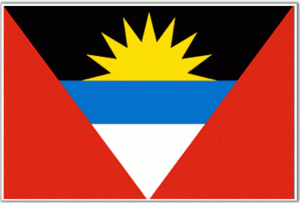 ST JOHN’S, Antigua — Sub-regional parliamentarians assigned to the Organisation of Eastern Caribbean States (OECS) Assembly were due to meet in a seminar on Monday to finalise rules and procedures of the parliament ahead of Tuesday’s first sitting.
ST JOHN’S, Antigua — Sub-regional parliamentarians assigned to the Organisation of Eastern Caribbean States (OECS) Assembly were due to meet in a seminar on Monday to finalise rules and procedures of the parliament ahead of Tuesday’s first sitting.
Following remarks from OECS Director General Dr Len Ishmael and host Prime Minister Baldwin Spencer, the members of parliament from the seven member states and two associates will review the Revised Treaty of Basseterre and the significance of the OECS Assembly as an organ of the organisation.
The group will also mull the legislative competence of the OECS Assembly, as enshrined in the treaty.
The OECS and the Caribbean Community (CARICOM) and how both constructs interface is also on Monday’s agenda.
Other housekeeping matters, like the Assembly prayer, rules and procedures of the house and guidelines, will also be the subject of dialogue.
On Tuesday, the OECS Assembly will have its first sitting – a working session – following the pomp and ceremony of the inauguration on August 10, 2012.
Among matters on the order paper is a motion to look at the challenges of free movement of people within the OECS Economic Union. Free movement began on August 1, 2011.
The proposed Acts and regulations are Civil Aviation (Aeronautical Telecommunications) Regulations and Civil Aviation (Amendment) Regulations.
Speaking on this week’s media roundtable, Ambassador Colin Murdoch said the operationalisation of the OECS Assembly represents “meat being put on the bones” of the sub-regional integration movement that dates back three decades, to June 18, 1981, when the Treaty of Basseterre was signed. The Revised Treaty of Basseterre was signed on June 18, 2010, and came into force on January 21, 2011.
The OECS Assembly will serve as a legislative filter for the OECS. The five main areas for which decisions taken are legally binding on member states are the common market aspects of the Economic Union; monetary policy; trade policy; maritime jurisdiction and maritime boundaries; and civil aviation.
The OECS member states are Antigua and Barbuda, Dominica, Grenada, Montserrat, St Kitts and Nevis, St Lucia, and St Vincent and the Grenadines, all of which participate in the Economic Union. The non-member states are Anguilla and the British Virgin Islands.
Representation to the OECS Assembly is drawn from government and opposition, with member states having five representatives and the associates three.
Antigua and Barbuda is the permanent seat of the Assembly.
